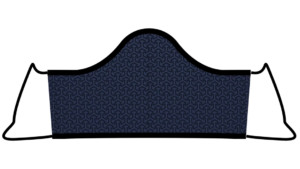CIT Rubicon
Rubicon Centre- Cork Institute of Technology - Creating in Times of Crisis
Many businesses have adapted to facilitate an emerging need such as face masks. As the COVID-19 pandemic continues there is an increase in demand for PPE. We look at how two Rubicon clients are meeting demand.


The effects of the COVID-19 pandemic were unprecedented and has left many businesses struggling to remain in operation. With the change in the business landscape and the knock-on effect for society many businesses have begun adapting their strategies in order to facilitate new and emerging needs as the pandemic continues. One such company is Rash’R, a former Rubicon client, who make rash vests for water sports out of recycled ocean plastic. Rash’r identified a specific need in an emerging market – face masks.
PADI is the world’s largest scuba diving training organisation. They enlisted Rash’r to work with them on producing masks made from post-consumer plastics that were polluting oceans. This collaboration has led to sustainable masks being produced for customers based around the globe. By adapting their businesses, they not only are they providing something that people require in the midst of a global pandemic, but they are also creating something that aligns with people’s beliefs in regard to sustainability.
In order to remain committed to their cause, masks are sold at a cost price. People are only paying for the costs incurred in manufacturing their mask. Neither business is making a profit from this latest venture. At a time where a lot of profit is being made by other producers and distributors involved in providing masks to the public, PADI and Rash’r don’t view this as an opportunity to make money for themselves.
The masks are unique not only for the materials they are made from but also for the filters that are provided with them. Each mask comes with 5 replacement filters made with activated carbon, providing wearers with additional protection from exposure to droplets. Although these filters are only recommended for 8 hours of use, additional filters can be purchased if the customer requires more. The masks that they produce come in sizes for both adults and children which make them more accessible. A lot of mainstream producers of masks focus on the adult market and it is harder to source masks suitable for children. One of the most important factors of the creation of these masks is that it reserves medically graded masks for healthcare professionals.
The hard work and dedication by those involved in producing these masks has not gone unnoticed. Leonardo DiCaprio shared the initiative to his 43.2 million followers which has exposed the venture further. The exposure provided by Leo for Rash’r has exposed them to additional customers across the globe. What was once a small start-up has gone from strength to strength and their decision to do better for society has reflected on the company which will undoubtedly lead to them growing further in the future.
Another business pivoting in the current pandemic is 2019 Student Inc. participant Lucy Cummins. Lucy designs and produces festival clothing under the brand name Lulu’s Bits. She’s a full-time student in Cork Institute of Technology and spent last summer working on her business in the Rubicon Centre on the Student Inc. programme. Lucy’s masks are made from material scraps so another sustainable environmentally friendly option. With every mask Lulu’s Bits sells they donate one to a nursing home in Cork.


